



If you find yourself wandering through Kota Administrasi Jakarta Barat,you’ll immediately notice a lively,grounded energy that feels both bustling and welcoming. It’s a place where the rhythm of daily life pulses through vibrant street markets,the chatter of locals bargaining over fresh produce,and the scent of sizzling street food wafting through the air. The streets hum with motorbikes weaving through traffic,while the occasional call to prayer from nearby mosques adds a gentle,spiritual backdrop to the urban soundtrack. What’s truly captivating about West Jakarta is its blend of old and new. You can stroll past traditional kampung neighborhoods where children play in narrow alleys,then turn a corner to find modern shopping centers and cozy cafes tucked away. The city wears its history lightly,with colonial-era buildings standing alongside colorful murals that tell stories of the community’s rich cultural tapestry. It’s a place where you can savor authentic Indonesian dishes—think spicy rendang or sweet,sticky kue lapis—while chatting with friendly locals who are always ready to share a smile or a story. Visiting here feels like stepping into a living,breathing mosaic of everyday life. The warmth of the people,the vibrant street scenes,and the tantalizing aromas make Kota Administrasi Jakarta Barat more than just a stop on your trip—it’s a place that invites you to slow down,soak in the atmosphere,and experience Jakarta’s heart in a way that’s refreshingly real.
The information on this page is currently being reviewed by Tripkliq and should be used as a guide only
Eng word: Hello
Eng pronunciation: HAH-loh
Local language: Halo
Eng word: Goodbye
Eng pronunciation: suh-LAH-maht TING-gahl
Local language: Selamat tinggal
Eng word: Thank you
Eng pronunciation: teh-REE-mah KAH-see
Local language: Terima kasih
Eng word: How much
Eng pronunciation: buh-RAH-pah
Local language: Berapa
Eng word: Toilet
Eng pronunciation: TOY-let
Local language: Toilet
Eng word: Help me
Eng pronunciation: TOH-long SAH-yah
Local language: Tolong saya
Eng word: Yes
Eng pronunciation: YAH
Local language: Ya
Eng word: No
Eng pronunciation: TEE-dahk
Local language: Tidak
Eng word: Excuse me
Eng pronunciation: puhr-MEE-see
Local language: Permisi
Kota Tua, also known as Old Town, is a historic area in Jakarta Barat that dates back to the 16th century. It was the original downtown area of Jakarta and features Dutch colonial buildings, museums, and a vibrant cultural scene.
Fatahillah Square is the heart of Kota Tua and is named after the founder of Jakarta, Fatahillah. The square is surrounded by important historical buildings, including the Jakarta History Museum, which was once the city hall during the Dutch colonial period.
Located in Fatahillah Square, the Jakarta History Museum, also known as Museum Fatahillah, offers a deep dive into the city's past. The museum is housed in a building that dates back to 1710 and was originally the city hall of Batavia.
The Wayang Museum, also located in Kota Tua, is dedicated to the traditional Javanese art of wayang puppetry. The museum showcases a vast collection of puppets from Indonesia and other parts of the world.
The Bank Indonesia Museum is housed in a beautiful colonial building that was once the headquarters of the De Javasche Bank. The museum offers insights into the history of banking in Indonesia and the role of Bank Indonesia in the country's economy.
Glodok is Jakarta's Chinatown and is one of the largest Chinatowns in the world. It has a rich history dating back to the Dutch colonial era and is known for its vibrant markets, temples, and culinary delights.
Vihara Dharma Bhakti, also known as Jin De Yuan, is the oldest Chinese temple in Jakarta. Built in 1650, it is a significant cultural and religious site for the Chinese community in Jakarta Barat.
Candra Naya is a historic building in Jakarta Barat that was once the residence of a prominent Chinese-Indonesian family. The building is a fine example of traditional Chinese architecture and is now a cultural heritage site.
Toko Merah, or the Red Shop, is one of the oldest buildings in Jakarta Barat. Built in 1730, it served various purposes over the centuries, including as a residence and a trading office. Its distinctive red facade makes it a notable landmark in Kota Tua.
In Kota Administrasi Jakarta Barat, the most common Power Adaptor is Type C, Type F.


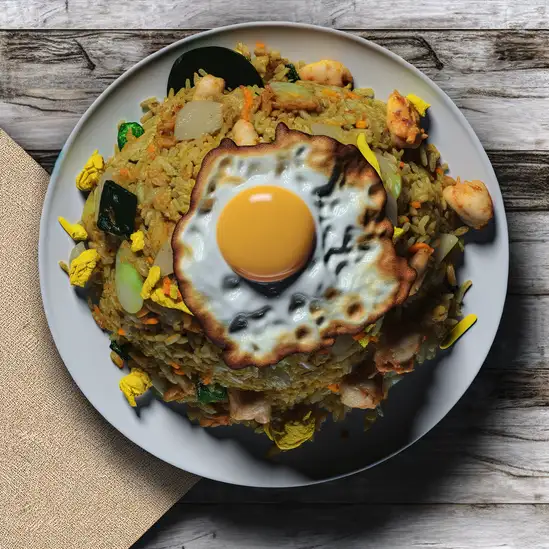
A flavorful fried rice dish often cooked with a mix of spices, vegetables, and proteins like chicken or shrimp, typically served with a fried egg on top.
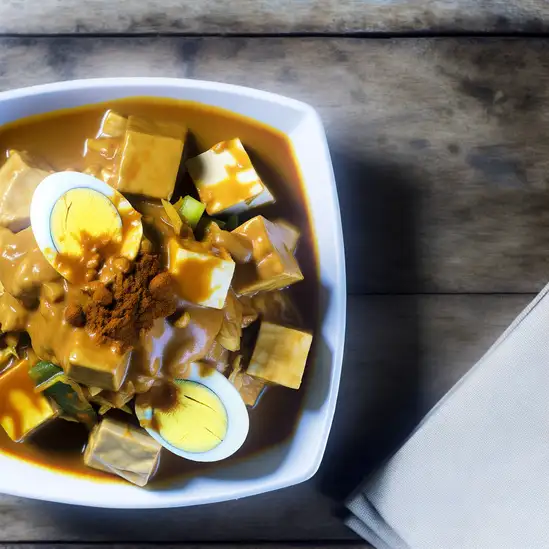
A salad of boiled vegetables, tofu, and hard-boiled eggs, served with a rich peanut sauce, making it a popular vegetarian option.
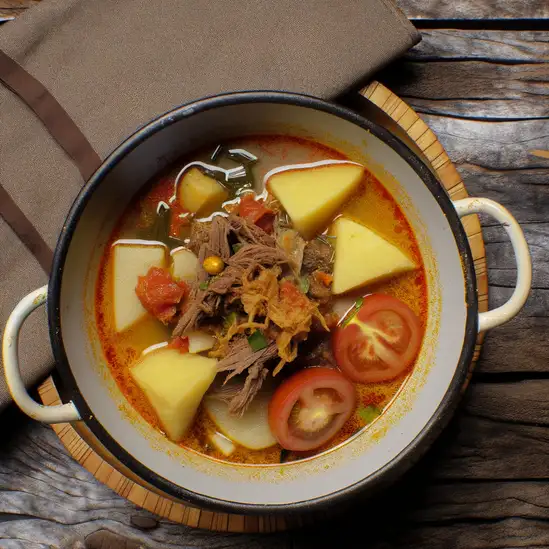
A traditional Betawi soup made with beef, coconut milk, and a variety of spices, often served with rice and a side of emping (melinjo crackers).
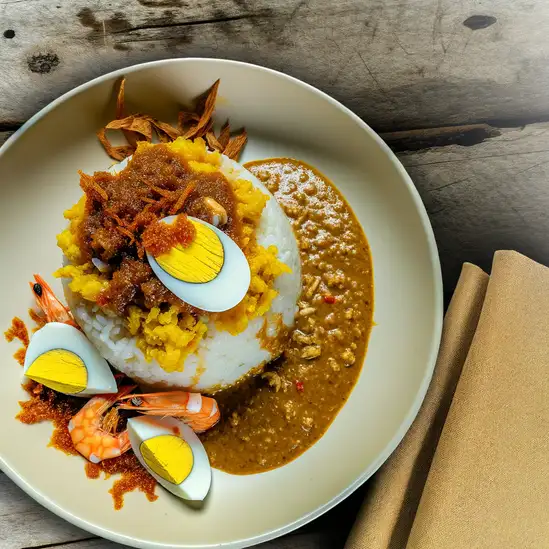
A Betawi omelette made with glutinous rice, eggs, and shredded coconut, cooked over charcoal for a smoky flavor, often topped with fried shallots.
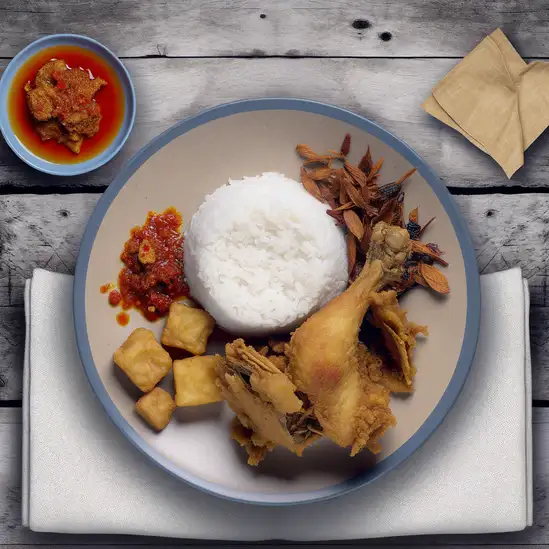
Smashed fried chicken served with sambal (spicy chili paste), rice, and fried tofu or tempeh, known for its bold flavors.
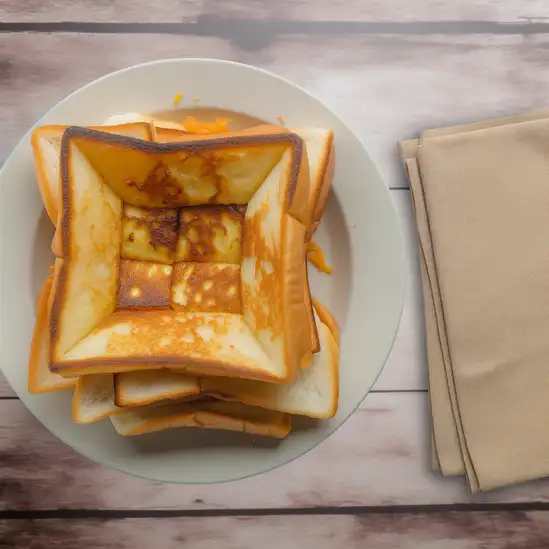
Indonesian toasted bread, often filled with a variety of sweet or savory toppings, such as chocolate, cheese, or condensed milk.

A refreshing salad made with pickled vegetables and fruits, typically served with a spicy peanut sauce, perfect for a hot day.
Bali feels like stepping into a vibrant dream where every corner pulses with life and warmth. From the moment you arrive,there’s this unmistakable energy—part spiritual,part playful—that wraps around you like a soft,tropical breeze. Imagine waking up to the gentle rustle of palm leaves and the distant sound of waves crashing against volcanic black sand beaches. The air carries a mix of frangipani blossoms and salty sea spray,instantly grounding you in the island’s natural beauty.
What really makes Bali special is its rich culture woven into everyday life. You’ll see locals in colorful sarongs offering flowers at temple steps,hear the rhythmic beat of gamelan music drifting through the air,and catch glimpses of intricate wood carvings and vibrant paintings in small artisan shops. The island’s spirituality isn’t just something you observe—it’s something you feel,a quiet presence that invites you to slow down and connect.
And then there’s the food—oh,the food! Freshly grilled satay,fragrant nasi campur bursting with spices,and tropical fruits so sweet they almost taste like candy. Whether you’re dining in a bustling market or a cliffside café overlooking the ocean,every bite feels like a celebration of Bali’s rich flavors and traditions. Honestly,Bali isn’t just a place you visit; it’s a place that stays with you,long after you’ve left.
If you ever find yourself wandering through Yogyakarta,you’ll immediately notice a rhythm that feels both lively and laid-back,like the city is humming a gentle,inviting tune. It’s a place where ancient traditions and youthful energy collide in the most beautiful way. As you stroll down Malioboro Street,the air is thick with the scent of sizzling satay and sweet jasmine from roadside stalls,while the chatter of locals bargaining and the distant beat of gamelan music create a vibrant soundtrack. The city’s heart beats in its art and culture—every corner seems to hold a story,from the intricate batik workshops to the majestic temples of Borobudur and Prambanan just a short ride away.
Yogyakarta’s charm lies in its warmth and authenticity. The people here are incredibly welcoming,often eager to share their crafts,stories,or a cup of strong Javanese coffee. You can feel the city’s deep respect for its heritage,yet it’s also a hub for creative souls,with street art splashed across walls and indie cafes buzzing with young artists and thinkers. The sunsets here are something else—casting a golden glow over the terracotta rooftops and ancient palaces,inviting you to pause and soak it all in.
Whether you’re wandering through the Sultan’s Palace,tasting gudeg (a sweet jackfruit stew) at a local warung,or simply watching the world go by from a cozy café,Yogyakarta wraps you in a sense of belonging. It’s a city that doesn’t just ask you to visit but to stay a little longer,to explore deeper,and to fall in love with its soul.
Imagine stepping into a city where the air carries a cool,refreshing breeze,a welcome relief from Indonesia’s usual tropical heat—that’s Bandung for you. Nestled among lush volcanic hills,this city pulses with a laid-back yet vibrant energy. As you wander its streets,you’ll hear the hum of scooters weaving through traffic,the chatter of locals bargaining in bustling markets,and the occasional clink of coffee cups from cozy cafés tucked into leafy corners. Bandung’s charm lies in this blend of nature and urban life,where modern creativity meets traditional Sundanese culture.
The scent of fresh rain mingles with the aroma of roasted coffee beans and sizzling street food,inviting you to slow down and savor the moment. Don’t miss trying the local delicacies—like the warm,comforting batagor (fried fish dumplings) or the sweet,sticky peuyeum (fermented cassava). Each bite tells a story of the city’s rich culinary heritage. Art and fashion lovers will find themselves enchanted by Bandung’s thriving creative scene,from indie boutiques showcasing local designers to vibrant street art splashed across walls.
What really makes Bandung unforgettable is its people—their warmth and easy smiles make you feel instantly at home. Whether you’re exploring the colorful markets,hiking nearby volcanic craters,or simply sipping tea while watching the sunset paint the sky in shades of pink and orange,Bandung invites you to slow down,breathe deeply,and soak in a rhythm that’s uniquely its own.
Surabaya pulses with an energy that’s both vibrant and welcoming,a city where history and modern life dance side by side. As you wander through its bustling streets,you’ll catch the scent of sizzling satay mingling with the salty breeze from the nearby harbor. The city hums with the chatter of locals bargaining in lively markets,the clatter of motorbikes weaving through traffic,and the distant call of street vendors selling fresh tropical fruits. It’s a place where every corner tells a story—from colonial-era buildings standing proudly alongside sleek skyscrapers to colorful murals that splash life onto old walls.
What really makes Surabaya special is its character:tough yet warm,a city that’s seen its share of history but never lost its heart. The people here are fiercely proud and incredibly friendly,always ready to share a smile or a recommendation for the best local warung. Dive into the food scene and you’ll find yourself savoring rich,spicy flavors—like the famous rawon,a dark beef soup that’s both comforting and bold,or the sweet,sticky lontong balap that fills the air with fragrant spices.
Evenings in Surabaya have their own magic. The city lights flicker on,and the streets fill with the sounds of gamelan music drifting from cultural performances or the laughter spilling out of cozy cafes. Whether you’re exploring the historic old town or simply sipping kopi on a street corner,Surabaya invites you to slow down,soak in its layers,and feel the heartbeat of a city that’s alive in every sense.
If you ever find yourself craving a place where the ocean breeze carries the scent of sizzling street food and the hum of lively markets fills the air,Makassar should be at the top of your list. This city pulses with a laid-back energy that feels both vibrant and welcoming,like a friend inviting you to slow down and savor the moment. Walking along the waterfront,you’ll catch glimpses of traditional wooden phinisi boats bobbing gently,their sails catching the golden light of sunset,while fishermen call out to one another in a melodic rhythm that feels timeless.
Makassar’s streets are a feast for the senses. The aroma of grilled seafood—freshly caught and seasoned with local spices—wafts from warungs lining the alleys,tempting you to try coto Makassar,a rich,aromatic beef soup that locals swear by. The city’s mix of Bugis and Makassarese cultures shines through in its colorful markets,where vibrant textiles,handcrafted jewelry,and lively banter create a tapestry of daily life that’s both authentic and inviting.
What really makes Makassar stand out is its blend of old and new. You can explore centuries-old forts and mosques,then hop over to a bustling café where young creatives gather,blending tradition with modern flair. It’s a place where every corner tells a story,and every meal feels like a celebration. Trust me,Makassar isn’t just a stopover—it’s a place that stays with you long after you’ve left.
If you ever find yourself wandering through Kota Medan,you’ll immediately notice its vibrant pulse—a city where tradition and modern life dance together effortlessly. The streets buzz with the chatter of locals,the sizzle of street food stalls,and the occasional call to prayer echoing from nearby mosques. It’s a place that feels alive,warm,and inviting,like an old friend eager to share stories over a cup of kopi Medan,the local coffee that’s rich,bold,and just a little sweet.
Walking through the city,your senses will be treated to a tapestry of aromas:fragrant spices from bustling markets,the smoky hint of grilled satay,and the fresh scent of tropical fruits piled high in colorful stalls. The architecture is a fascinating mix too—colonial-era buildings standing proudly alongside vibrant Chinese temples and bustling shopping streets. This blend reflects Medan’s diverse cultural roots,where Malay,Batak,Chinese,and Indian influences mingle in everyday life.
What really makes Medan special is its people—their warmth and openness make you feel instantly at home. Whether you’re savoring a plate of soto Medan,a comforting coconut milk soup,or exploring the lively Pasar Petisah market,there’s a genuine friendliness that invites you to slow down and soak it all in. It’s a city that doesn’t just welcome you; it wraps you in its rich,flavorful embrace and leaves you wanting to come back for more.
Money changers may use confusing rates or sleight of hand to shortchange tourists during currency exchanges.
Individuals may approach tourists asking for donations for fake charities or causes.
Scammers posing as police officers may accuse tourists of minor infractions and demand on-the-spot fines.
Vendors may sell counterfeit or low-quality souvenirs at inflated prices, claiming they are authentic or handmade.
Scammers posing as tour guides may offer their services to tourists and charge high fees for subpar or unnecessary tours.
Tourists renting motorbikes may be accused of causing pre-existing damage and forced to pay for repairs.
Some restaurants or street vendors may overcharge tourists, especially if prices are not clearly displayed beforehand.
Crowded areas like markets, buses, or tourist attractions are hotspots for pickpockets targeting unsuspecting tourists.
Scammers may lure tourists into street gambling games, which are rigged to ensure the tourist loses money.
Some taxi drivers may refuse to use the meter and charge tourists inflated fares, especially from airports or tourist hotspots.
Indonesia has very strict laws regarding drug use, possession, and trafficking. The penalties for drug-related offenses are severe and can include long prison sentences, heavy fines, and even the death penalty for trafficking. Tourists should avoid any involvement with illegal drugs and be aware that even small quantities can lead to serious legal consequences.
In Kota Administrasi Jakarta Barat, smoking is regulated under Indonesian national law. Smoking is prohibited in public places such as schools, hospitals, public transportation, and government buildings. There are designated smoking areas in some public places, but smoking outside these areas can result in fines. Tourists should be mindful of 'No Smoking' signs and adhere to local regulations to avoid penalties.
Vaping is subject to similar regulations as smoking in Jakarta Barat. It is prohibited in public places where smoking is banned, including schools, hospitals, and public transportation. Vaping in non-designated areas can also result in fines. Tourists should look for designated vaping areas and follow local rules to avoid any legal issues.
What are other people saying about Kota Administrasi Jakarta Barat?
Recent Social posts about Kota Administrasi Jakarta Barat
There is nothing to show you for now.